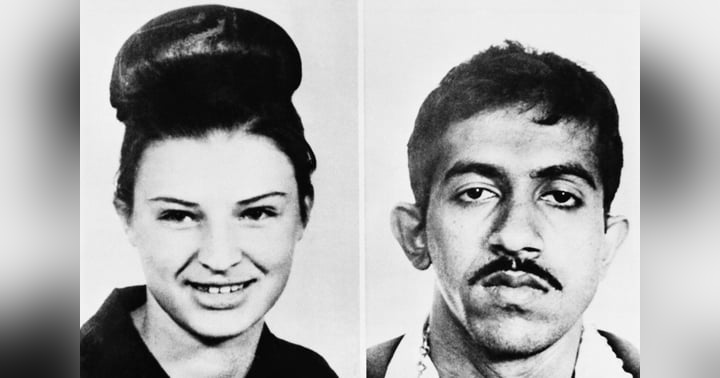The Joe Arridy Case: A Tragedy of Justice?

In the annals of legal history, certain cases stand out not for their clarity or resolution, but for the profound questions they raise about justice, fairness, and the fallibility of the system. Among these, the case of Joe Arridy is particularly haunting. A man with a demonstrably low IQ, Arridy was convicted and executed for the 1936 murder of Dorothy Drain in Pueblo, Colorado. However, the evidence against him was flimsy at best, and his confession was widely believed to have been coerced. Was Joe Arridy truly guilty, or was he a victim of a flawed system? This blog post delves into the details of the case, exploring the evidence (or lack thereof) that led to his conviction and execution, and raising questions about the fairness of the justice system at the time. We’ll dissect the circumstances surrounding his trial, the lingering doubts about his guilt, and the broader implications for individuals with mental disabilities within the legal framework. Be sure to listen to the companion episode, The Happiest Man On Death Row, which provides a concise and gripping overview of this tragic story.
Who Was Joe Arridy? A Look at His Mental Capacity
Joe Arridy was born in 1915 and lived a life marked by profound intellectual challenges. From an early age, it was clear that he struggled with cognitive abilities. He had a measured IQ of around 46, which is considered severely mentally disabled. He had the mental capacity of a young child. Reports from the time described him as simple-minded, easily led, and highly suggestible. He was often found wandering the streets, fixated on toys and simple pleasures, largely oblivious to the complexities of the adult world. He was described by those who knew him as gentle and harmless, possessing a childlike innocence that was both endearing and vulnerable.
Arridy's limited mental capacity played a crucial role in the unfolding events that led to his conviction. His inability to understand complex legal concepts, combined with his susceptibility to suggestion, made him an easy target for law enforcement seeking a quick resolution to a high-profile crime. The question of whether a person with such significant cognitive impairments could truly understand the consequences of their actions, or the legal proceedings against them, remains a central and deeply troubling aspect of this case.
The Crime: What Arridy Was Accused Of
On August 15, 1936, the town of Pueblo, Colorado, was shaken by a brutal crime. Dorothy Drain, a 15-year-old girl, was found murdered. She had been sexually assaulted and bludgeoned to death with an axe. The crime sparked immediate outrage and a fervent demand for justice. Law enforcement authorities, under immense pressure to find the perpetrator, quickly focused their attention on potential suspects. Among those who came under scrutiny was Joe Arridy.
Arridy, who was 21 years old at the time, was picked up by police in Cheyenne, Wyoming, several days after the murder. He was found wandering near the railroad tracks, a common occurrence for him. He was initially questioned about a separate crime, a robbery. However, during the interrogation, Arridy mentioned being in Pueblo around the time of the Drain murder. This casual remark, combined with his known intellectual disability and suggestibility, set in motion a series of events that would ultimately lead to his conviction and execution.
The 'Evidence' Against Him: A Lack of Concrete Proof?
The case against Joe Arridy was remarkably thin, resting almost entirely on his confession and circumstantial details. Crucially, there was no physical evidence linking him directly to the crime scene. No fingerprints, no DNA (a technology not available at the time), and no eyewitnesses placed him at the location where Dorothy Drain was murdered. The axe used in the killing was never definitively connected to Arridy. In essence, the prosecution's case hinged on Arridy's own words, words that were later called into serious question.
Despite the lack of concrete evidence, authorities presented a narrative that painted Arridy as the perpetrator. They highlighted his presence in Pueblo and the fact that he confessed to the crime, albeit a confession that was inconsistent and riddled with inaccuracies. The prosecution also emphasized Arridy's mental deficiencies, portraying him as a dangerous simpleton capable of violence. This characterization, while arguably rooted in prejudice and misunderstanding, resonated with a public eager to see justice served.
The absence of compelling evidence raises fundamental questions about the validity of the conviction. In a legal system predicated on the principle of "innocent until proven guilty," the Arridy case stands as a stark reminder of the potential for error, particularly when dealing with vulnerable individuals with impaired cognitive abilities.
The Confession: Coerced or Genuine?
The confession obtained from Joe Arridy is perhaps the most controversial aspect of the entire case. During his interrogation, Arridy confessed to being involved in the murder of Dorothy Drain. However, the circumstances surrounding this confession raise serious concerns about coercion and manipulation.
According to contemporary accounts, Arridy was interrogated for extended periods without legal representation or the presence of a guardian. The interrogating officers, led by Sheriff George Carroll, reportedly used leading questions and suggestive techniques to elicit the desired responses from Arridy. Arridy's confession was riddled with inconsistencies and factual errors. He was unable to provide accurate details about the crime scene or the sequence of events. For instance, he initially claimed that another man, "Frank," was also involved in the murder. However, this "Frank" was never identified or apprehended, and Arridy's account of his involvement changed over time.
Critics of the Arridy conviction argue that his confession was not a genuine admission of guilt but rather a product of his suggestibility and the manipulative tactics of law enforcement. Given his limited mental capacity, it is highly plausible that Arridy simply agreed with whatever the officers suggested to him, eager to please them and escape the stressful interrogation. The confession, therefore, should be viewed with extreme skepticism, as it may not accurately reflect Arridy's true involvement in the crime.
The Trial and Conviction: A Swift Injustice?
The trial of Joe Arridy was a swift and, many would argue, unjust affair. Despite the lack of concrete evidence and the questionable nature of his confession, Arridy was quickly convicted of first-degree murder. The trial proceedings were marked by a pervasive atmosphere of prejudice and a clear lack of understanding regarding Arridy's mental condition.
Arridy was provided with legal representation, but his attorney, Earl Moore, appears to have done little to effectively defend him. Moore presented minimal evidence to challenge the prosecution's case or to highlight Arridy's intellectual disabilities. He failed to adequately cross-examine the prosecution's witnesses or to challenge the validity of the confession. Some have argued that Moore's performance was woefully inadequate, possibly due to a lack of resources, experience, or a genuine belief in Arridy's innocence.
The jury, composed of local citizens who were undoubtedly influenced by the widespread outrage over the Drain murder, reached a guilty verdict in a relatively short amount of time. Arridy was sentenced to death by lethal gas, a sentence that seemed disproportionate given the questionable circumstances surrounding his conviction. The swiftness of the trial and the severity of the sentence further fueled suspicions that Arridy was a victim of a system eager to find a scapegoat and quell public unrest.
Execution and Last Meal: Ice Cream on Death Row
Joe Arridy was executed on January 6, 1939, at the Colorado State Penitentiary. His case remains one of the most disturbing examples of a potential miscarriage of justice in American history. Adding to the tragedy, Arridy's final days were marked by a poignant innocence that belied the gravity of his situation.
According to accounts from prison staff, Arridy remained remarkably cheerful and unconcerned about his impending execution. He spent his time playing with toys, reading comic books, and interacting with the guards in a friendly manner. He seemed to lack a full understanding of his fate, a tragic consequence of his limited mental capacity. When asked about his last meal, Arridy requested a single scoop of ice cream, a simple pleasure that reflected his childlike nature.
On the day of his execution, Arridy reportedly walked calmly to the gas chamber, still clutching a toy train that he had been given by one of the guards. Witnesses described him as appearing confused but not fearful. As he was strapped into the chair, he reportedly smiled and waved at the observers. His last words were, "No, no," possibly in response to the restraints being placed upon him. The execution proceeded, and Joe Arridy, a man whose guilt remains highly questionable, was put to death.
The Fight for Justice: Re-examining the Case Decades Later
For decades, the case of Joe Arridy faded into obscurity, a forgotten footnote in the annals of legal history. However, in the late 20th and early 21st centuries, renewed interest in the case emerged, driven by legal scholars, historians, and advocates for the mentally disabled. These individuals began to re-examine the evidence, scrutinize the trial proceedings, and raise serious questions about the fairness of Arridy's conviction.
The re-examination of the Arridy case focused on several key areas: the lack of concrete evidence, the questionable nature of his confession, the inadequacy of his legal representation, and the pervasive prejudice against individuals with mental disabilities in the criminal justice system. Advocates argued that Arridy was a victim of circumstance, a vulnerable individual who was wrongly accused and unjustly executed.
In 2011, after years of advocacy, Colorado Governor Bill Ritter posthumously pardoned Joe Arridy. The pardon was based on the overwhelming evidence that Arridy had been wrongly convicted and executed. It was a symbolic gesture, but it represented a significant step towards acknowledging the injustice that had been committed. The pardon did not bring Arridy back to life, but it did restore his reputation and affirmed the principle that even the most vulnerable members of society are entitled to a fair trial and equal justice under the law.
Mental Disability and the Justice System: A Troubling Reflection
The case of Joe Arridy serves as a stark reminder of the challenges faced by individuals with mental disabilities within the criminal justice system. These individuals are often particularly vulnerable to wrongful conviction and unfair treatment due to their limited cognitive abilities, suggestibility, and difficulty understanding complex legal concepts. The Arridy case highlights the need for greater awareness, sensitivity, and protection for this vulnerable population.
The legal system must ensure that individuals with mental disabilities are provided with adequate legal representation, including attorneys who are trained to understand their unique challenges. Interrogation techniques should be carefully monitored to prevent coercion and manipulation. Juries must be educated about the potential for false confessions and the need to consider the defendant's mental capacity when assessing their guilt or innocence.
The Arridy case also raises broader questions about the role of mental health professionals in the criminal justice system. Experts in psychology and psychiatry can provide valuable insights into a defendant's mental state and ability to understand the legal proceedings against them. Their testimony can help to ensure that individuals with mental disabilities are treated fairly and that their rights are protected.
The Question of Innocence: What Was Joe Arridy Trying to Tell Us?
The central question that lingers over the Joe Arridy case is, of course, whether he was truly innocent. While the evidence against him was circumstantial and his confession was questionable, it is impossible to know with absolute certainty what happened on the night of Dorothy Drain's murder. However, the overwhelming weight of evidence suggests that Arridy was not the perpetrator.
His limited mental capacity, the lack of physical evidence, the inconsistencies in his confession, and the speed and bias of the trial all point to the conclusion that Arridy was a victim of a flawed system. He may have been present at the scene of the crime, or he may have simply been in the wrong place at the wrong time. Regardless of his exact role, it is clear that he was not capable of fully understanding the charges against him or of effectively defending himself.
Perhaps Joe Arridy was trying to tell us that even the most vulnerable members of society deserve justice. Perhaps he was trying to tell us that the legal system is not infallible and that mistakes can be made, with tragic consequences. Perhaps he was simply trying to tell us that he was innocent. Whatever his message, the case of Joe Arridy serves as a powerful reminder of the importance of fairness, compassion, and the pursuit of truth in the administration of justice.
Conclusion: A Tragedy of Justice? The Lingering Doubts
The Joe Arridy case remains a haunting reminder of the potential for injustice within the legal system. A man with a demonstrably low IQ, Arridy was convicted and executed on the basis of flimsy evidence and a questionable confession. The circumstances surrounding his trial, the lack of adequate legal representation, and the pervasive prejudice against individuals with mental disabilities all contributed to what many believe was a tragic miscarriage of justice. While the posthumous pardon granted in 2011 offered some measure of closure, the lingering doubts about Arridy's guilt continue to fuel debate and reflection. The case serves as a potent reminder of the need for vigilance, compassion, and a commitment to ensuring that all individuals, regardless of their mental capacity, are treated fairly and justly under the law. If you found this deep dive into the details surrounding Joe Arridy's case interesting and thought-provoking, don't forget to listen to The Happiest Man On Death Row for a condensed overview of this tragic story.





